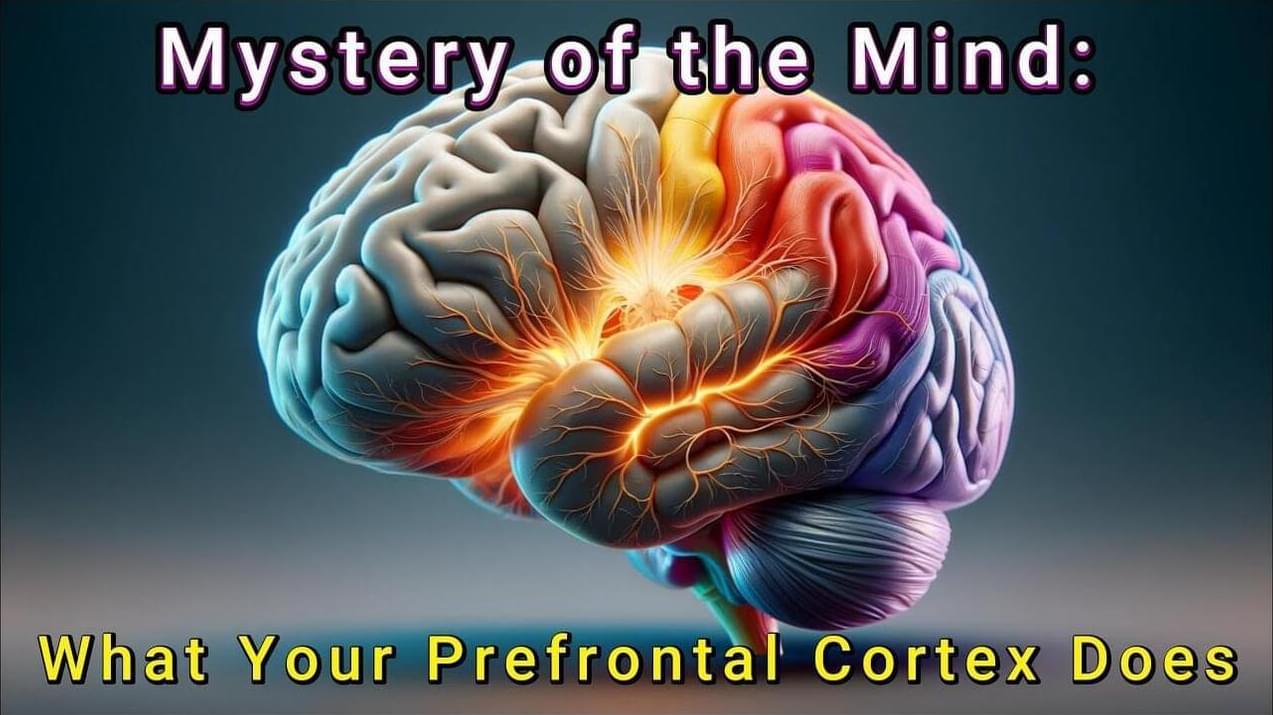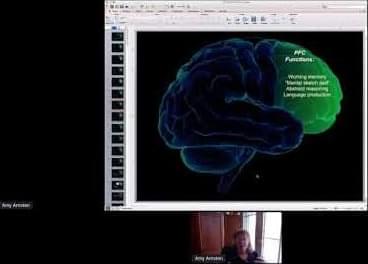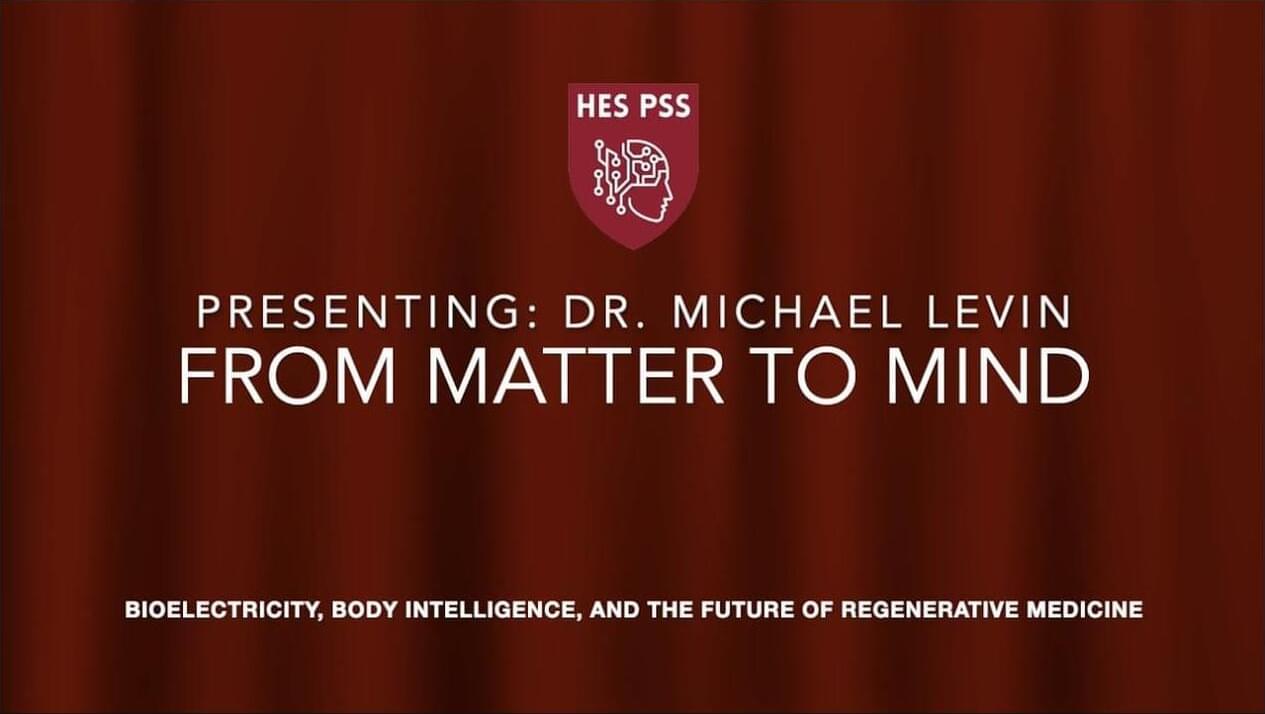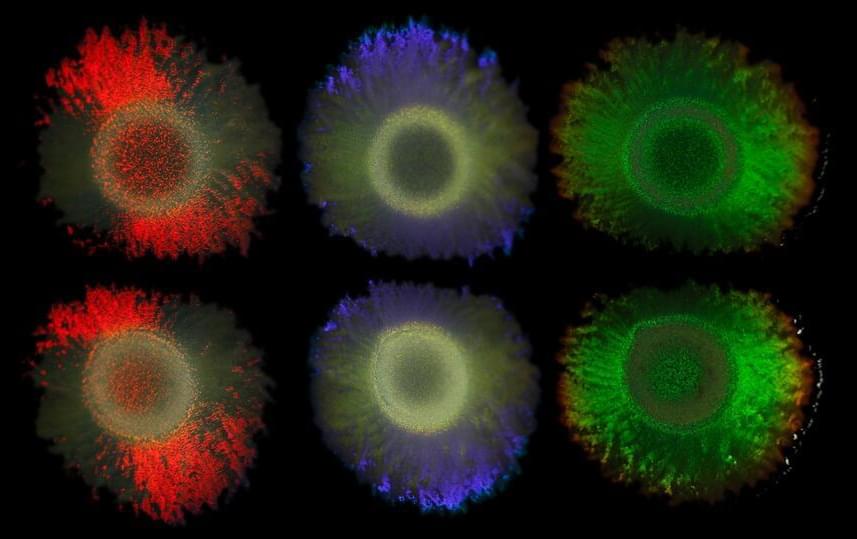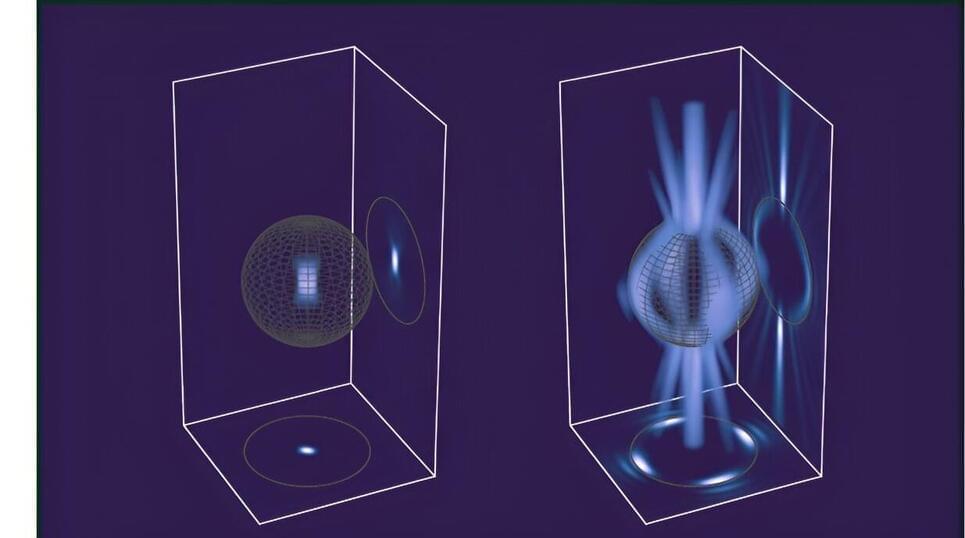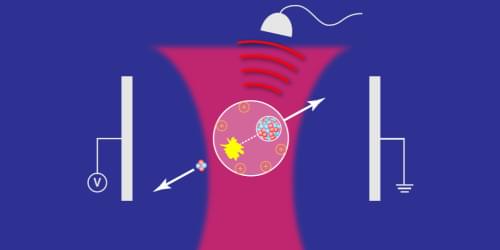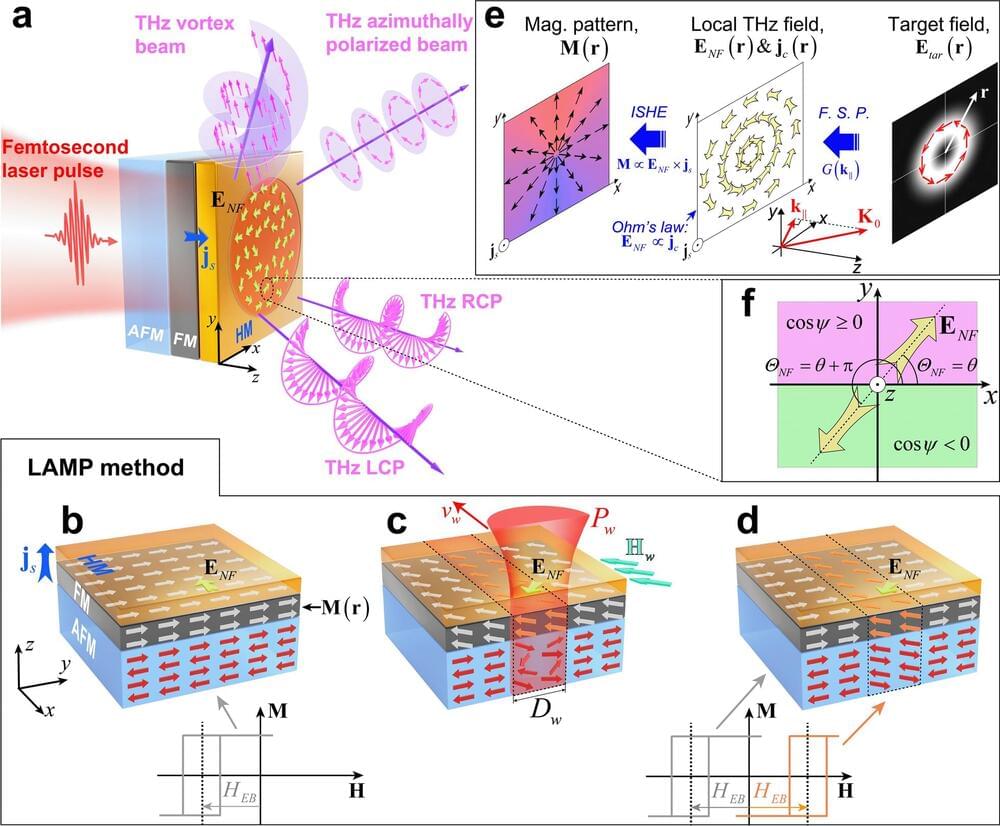
In this work, we show that the flexible programming of the exchange-biased magnetic heterostructure enables the direct generation of various structured terahertz beams with complex polarization distributions. In the above demonstrations, we did not perform amplitude design on ENF(r), as lasers with Gaussian profiles were utilized to excite various programmed emitters. To exert control over local NF amplitudes, spatial light modulators can be further employed to manipulate the amplitude profiles of excitation lasers.
It is important to acknowledge that, owing to the inherent capability of generating only linearly polarized ENF locally, a crucial constraint arises: the NF terahertz amplitudes for the LCP and RCP components must be equal at all locations, leading to \({A}_{NF}^{L}(\mathbf{r})={A}_{NF}^{R}(\mathbf{r})\) at the emitter’s surface. As a consequence, both LCP and RCP terahertz fields are simultaneously generated in the far field. In situations where terahertz beams with a pure polarization state are of interest, one can strategically design the magnetization pattern so that desired polarization state is focused at the center, while surrounding it with other polarizations. By employing simple spatial filtering, this pure polarization state can be isolated and utilized. This concept was demonstrated by the LCP Gaussian beam in the last demonstration, where different spatial phase gradients were applied on the LCP and RCP light beams, allowing for their spatial separation in the far field.
Furthermore, by fabricating the heterostructures into appropriately oriented micro-structures, one can induce confinements onto the local charge currents [38,39,40]. This enables independent control over the x- and y-components of the local terahertz fields, potentially facilitating the realization of an arbitrary terahertz wave generator.

